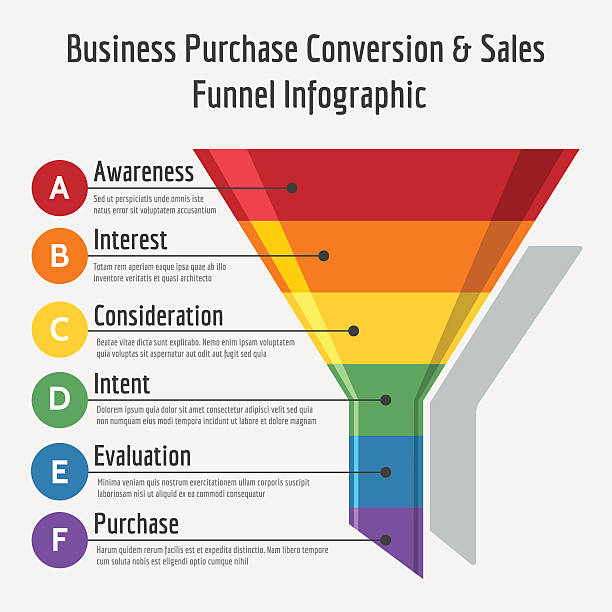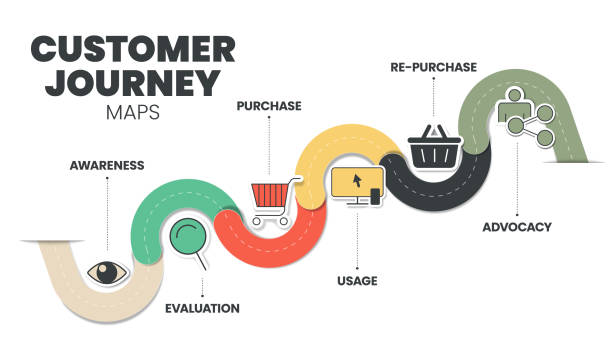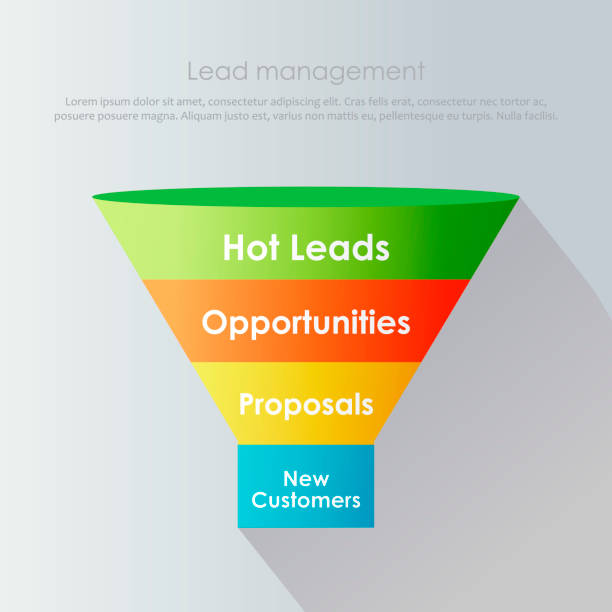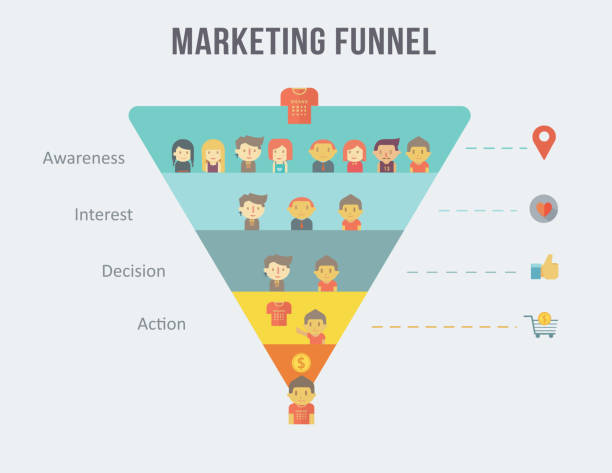-

Step-by-Step Guide to Becoming a Social Media Specialist: Skills, Tools, and Career Tips January 12, 2025
-

AI-Powered Social Media Marketing January 10, 2025
-

How Can an Expert in Social Media Increase LinkedIn Engagement? January 05, 2025
-

How Social Media Networks Have Helped in Building Pinterest Careers January 03, 2025
-

Instagram Creator Studio: A Game-Changer for Content Creators January 01, 2025

What is a Marketing Funnel? Simple Steps to Understand
- Marketing Funnel
- Marketing Funnel vs Sales Funnel
- How to Create an Effective Marketing Funnel
- Tools for Building a Marketing Funnel
- Sales Funnel
- Strategies for Optimizing the Sales Funnel
- Marketing Funnel Stages
- Overview of Marketing Funnel Stages
- Social Media Specialist
- Measuring Social Media Performance
- Social Media Solutions
- Conclusion
- Relevant Blogs
In the world of digital marketing, understanding the concept of a marketing funnel is crucial for businesses aiming to convert potential customers into loyal clients. A marketing funnel represents the journey that potential customers go through before making a purchase decision. It encompasses various stages, from awareness to consideration and finally to conversion. This blog post will delve deep into the intricacies of the marketing funnel, exploring its components, significance, and how businesses can effectively utilize it to enhance their marketing strategies. Whether you're a seasoned marketer or just starting out, this comprehensive guide will provide you with valuable insights into creating an effective marketing funnel.
Marketing Funnel
The marketing funnel is a visual representation of the customer journey, illustrating how potential customers move from initial awareness of a product or service to the final decision to make a purchase. Understanding this funnel is essential for marketers as it helps them tailor their strategies to meet the needs and expectations of their target audience at each stage.
Definition and Importance
At its core, the marketing funnel is designed to capture the attention of potential customers and guide them through a series of steps that ultimately lead to a sale. The importance of the marketing funnel lies in its ability to provide a structured approach to understanding consumer behavior. By analyzing the funnel, businesses can identify where they may be losing potential customers and adjust their marketing tactics accordingly.
A well-defined marketing funnel allows companies to create targeted campaigns that resonate with their audience. For instance, if a business notices a significant drop-off at the consideration stage, it may need to improve its content or offer more compelling incentives to encourage prospects to move forward in the buying process.
Stages of the Marketing Funnel
The marketing funnel typically consists of several key stages: awareness, interest, consideration, intent, evaluation, and purchase. Each stage serves a distinct purpose and requires different marketing strategies to effectively engage potential customers.
Awareness: At this stage, potential customers become aware of your brand, product, or service. This is often achieved through various marketing channels such as social media, search engine optimization (SEO), and paid advertising.
Interest: Once awareness is established, the next step is to generate interest. This can be accomplished through engaging content, informative blog posts, or eye-catching visuals that highlight the benefits of your offering.
Consideration: In this stage, potential customers are actively considering their options. They may compare your product with competitors, read reviews, and seek additional information. Providing detailed product descriptions, testimonials, and case studies can help sway their decision in your favor.
Intent: Here, prospects show clear intent to purchase. They might add items to their cart or sign up for a free trial. It’s essential to nurture these leads with personalized communication and offers that encourage them to complete the purchase.
Evaluation: At this point, customers evaluate their choices. They may reach out for more information or seek reassurance about their decision. Addressing any concerns promptly and providing excellent customer service can help reinforce their choice.
Purchase: Finally, the customer makes the purchase. However, the funnel doesn’t end here; it's essential to continue engaging with customers post-purchase to foster loyalty and encourage repeat business.

Benefits of Implementing a Marketing Funnel
Implementing a marketing funnel offers numerous benefits for businesses. Firstly, it provides clarity on the customer journey, allowing marketers to understand where to focus their efforts. Secondly, it enables businesses to create tailored content that speaks directly to the needs and pain points of their audience at each stage. Additionally, a well-structured funnel can improve lead generation, increase conversion rates, and ultimately drive revenue growth.
Moreover, by analyzing the performance of each stage within the funnel, businesses can identify areas for improvement and optimize their marketing strategies. This data-driven approach ensures that resources are allocated efficiently, maximizing return on investment (ROI).
Marketing Funnel vs Sales Funnel
While the term "marketing funnel" is often used interchangeably with "sales funnel," there are subtle differences between the two concepts. The marketing funnel focuses on the broader scope of attracting and nurturing leads, while the sales funnel zeroes in on the final stages of the purchasing process.
Differences Between Marketing Funnel and Sales Funnel
Understanding the distinction between the marketing funnel and the sales funnel is vital for developing effective marketing strategies. The marketing funnel encompasses all activities aimed at generating awareness and interest, while the sales funnel specifically addresses the actions taken to convert leads into paying customers.
Marketing Funnel: This funnel includes all the touchpoints and interactions a potential customer has with your brand, from the first encounter to the moment they express interest in making a purchase. It emphasizes building relationships and trust over time.
Sales Funnel: In contrast, the sales funnel focuses on the final stages of the buying process. It involves direct sales tactics, such as closing deals and negotiating terms. The sales funnel is narrower in scope and is primarily concerned with converting leads into customers.
How to Create an Effective Marketing Funnel
Creating an effective marketing funnel requires careful planning and execution. Here are some essential steps to consider:
-
Define Your Target Audience: Understanding who your ideal customers are is the first step in creating a successful marketing funnel. Conduct market research to identify demographics, preferences, and pain points.
-
Map Out the Customer Journey: Visualize the path your customers take from awareness to purchase. Identify the key touchpoints and interactions that occur at each stage of the funnel.
-
Develop Tailored Content: Create content that resonates with your audience at each stage of the funnel. Use blog posts, videos, infographics, and social media posts to engage potential customers and address their specific needs.
-
Utilize Multiple Channels: Leverage various marketing channels to reach your audience effectively. This may include email marketing, social media, SEO, and paid advertising. Each channel should align with the goals of your marketing funnel.
-
Analyze and Optimize: Continuously monitor the performance of your marketing funnel. Use analytics tools to track metrics such as conversion rates, bounce rates, and engagement levels. Based on the data collected, make necessary adjustments to improve the funnel's effectiveness.

Tools for Building a Marketing Funnel
Several tools can assist in building and optimizing your marketing funnel. These tools range from customer relationship management (CRM) software to marketing automation platforms. Some popular options include:
HubSpot: HubSpot offers a comprehensive suite of marketing tools, including CRM, email marketing, and analytics. It allows businesses to create and manage their marketing funnels seamlessly.
ClickFunnels: ClickFunnels specializes in building sales funnels and landing pages. It provides templates and features that simplify the process of creating high-converting funnels.
Mailchimp: Mailchimp is an email marketing platform that also offers automation features. It allows businesses to nurture leads through targeted email campaigns based on their position in the marketing funnel.
By utilizing these tools, businesses can streamline their marketing efforts and create a more efficient marketing funnel.
Sales Funnel
The sales funnel is a critical component of the overall marketing strategy. It focuses specifically on the actions taken to convert leads into paying customers, emphasizing the importance of nurturing relationships during the final stages of the buying process.
Understanding the Sales Funnel
The sales funnel is often depicted as a narrow funnel shape, reflecting the decreasing number of leads as they progress through the stages of the buying process. While the marketing funnel aims to attract and engage potential customers, the sales funnel is concerned with closing deals and generating revenue.
Stages of the Sales Funnel
Similar to the marketing funnel, the sales funnel consists of several stages, including awareness, interest, decision, and action. However, the emphasis is placed on the actions taken by the sales team to guide prospects toward making a purchase.
Awareness: Just like in the marketing funnel, potential customers become aware of your product or service. This stage often involves marketing efforts that generate leads.
Interest: At this stage, leads express interest in your offering. Sales representatives may reach out to provide additional information and answer questions.
Decision: Prospects evaluate their options and consider making a purchase. This is where persuasive techniques come into play, such as offering discounts or showcasing testimonials.
Action: Finally, the prospect takes action and completes the purchase. This stage may involve finalizing payment details and ensuring a smooth transaction.

Strategies for Optimizing the Sales Funnel
To maximize the effectiveness of the sales funnel, businesses should implement specific strategies that enhance the customer experience and facilitate conversions.
Personalization: Tailoring communication and offers to individual prospects can significantly impact conversion rates. Use data to understand customer preferences and behaviors
Strategies for Optimizing the Sales Funnel
To maximize the effectiveness of the sales funnel, businesses should implement specific strategies that enhance the customer experience and facilitate conversions.
Lead Scoring
Implementing a lead scoring system allows businesses to prioritize leads based on their level of engagement and readiness to purchase. This helps sales teams focus their efforts on high-potential leads.
Personalized Follow-Up
Following up with leads in a personalized manner can significantly impact conversion rates. Use data to tailor communication and address specific needs or concerns.
Streamlined Checkout Process
Ensuring a smooth and user-friendly checkout process is essential for minimizing cart abandonment. Simplify payment options and provide clear instructions to enhance the buying experience.
By continuously optimizing the sales funnel, businesses can improve their conversion rates and drive revenue growth.
Marketing Funnel Stages
The marketing funnel consists of several distinct stages, each representing a phase in the customer journey. Understanding these stages is essential for developing effective marketing strategies that resonate with potential customers.

Overview of Marketing Funnel Stages
The marketing funnel typically includes the following stages: awareness, interest, consideration, intent, evaluation, and purchase. Each stage plays a crucial role in guiding potential customers toward making a purchase decision.
Awareness Stage
The awareness stage is the first step in the marketing funnel, where potential customers become aware of your brand and offerings. This stage is critical for capturing the attention of your target audience and generating interest.
Strategies for Generating Awareness
To create awareness, businesses can leverage various marketing channels, including social media, search engine optimization (SEO), content marketing, and paid advertising. Engaging content, eye-catching visuals, and compelling messaging are essential for attracting attention.
Measuring Awareness
Metrics such as website traffic, social media engagement, and brand mentions can help businesses gauge the effectiveness of their awareness efforts. Analyzing these metrics allows marketers to refine their strategies and reach a broader audience.
Interest Stage
Once potential customers are aware of your brand, the next stage is to generate interest. This is where businesses must provide valuable information and engage with their audience to nurture their curiosity.
Content Marketing
Creating informative and engaging content is essential for generating interest. Blog posts, videos, webinars, and downloadable resources can help educate potential customers and showcase the benefits of your offerings.
Building Relationships
Engaging with your audience through social media, email newsletters, and interactive content fosters relationships and keeps potential customers interested in your brand.
Consideration Stage
In the consideration stage, potential customers actively evaluate their options and compare your product or service with competitors. This is a critical phase where businesses must provide compelling reasons for prospects to choose them.
Providing Social Proof
Testimonials, case studies, and reviews can significantly influence prospects' decisions. Highlighting positive experiences from existing customers builds trust and credibility.
Offering Comparisons
Providing side-by-side comparisons of your product with competitors can help prospects understand the unique advantages of your offering. Clear and concise information is key to facilitating their decision-making process.
Intent Stage
At the intent stage, prospects demonstrate a clear intention to make a purchase. They may add items to their cart, sign up for a free trial, or request a quote. It's essential to nurture these leads effectively to encourage conversion.
Personalized Communication
Tailoring communication to address the specific needs and interests of prospects can significantly impact their decision. Use data to send targeted emails and offers that resonate with their intent.
Creating Urgency
Limited-time offers, exclusive discounts, and scarcity tactics can motivate prospects to take action and complete their purchase sooner rather than later.
Evaluation Stage
During the evaluation stage, prospects carefully assess their options before making a final decision. This is where businesses must address any lingering doubts or objections.
Providing Additional Information
Offering in-depth product descriptions, FAQs, and comparison guides can help alleviate concerns and reinforce the value of your offering.
Engaging Customer Support
Providing accessible customer support through live chat, phone, or email can help prospects get answers to their questions quickly, enhancing their confidence in their decision.
Purchase Stage
Finally, the purchase stage is where the prospect becomes a customer by completing the transaction. However, the marketing funnel doesn't end here; it's essential to continue engaging with customers post-purchase to foster loyalty and encourage repeat business.
Post-Purchase Follow-Up
Sending thank-you emails, requesting feedback, and offering additional resources can enhance the customer experience and build long-term relationships.
Encouraging Referrals
Satisfied customers are often willing to refer others to your brand. Implementing referral programs and incentivizing customers to share their experiences can help expand your reach.
Social Media Specialist
In today's digital landscape, social media plays a pivotal role in the marketing funnel. A social media specialist is responsible for leveraging social media platforms to engage with potential customers, build brand awareness, and drive traffic through the various stages of the marketing funnel.
Role of a Social Media Specialist
A social media specialist is tasked with developing and executing social media strategies that align with the overall marketing goals of a business. Their responsibilities include creating engaging content, managing social media accounts, and analyzing performance metrics to optimize campaigns.
Content Creation
Social media specialists are skilled in creating visually appealing and engaging content that resonates with the target audience. This may include graphics, videos, and written posts that highlight the brand's message.
Community Engagement
Building and nurturing a community around the brand is a key responsibility of a social media specialist. They interact with followers, respond to comments, and foster conversations that enhance brand loyalty.
Utilizing Social Media in the Marketing Funnel
Social media can be effectively integrated into each stage of the marketing funnel, helping businesses connect with potential customers and guide them through their journey.
Awareness
Social media platforms are powerful tools for generating awareness. By sharing informative and entertaining content, businesses can reach a wider audience and attract potential customers.
Interest
Engaging with followers through polls, quizzes, and interactive content can spark interest and encourage potential customers to learn more about the brand.
Consideration
Sharing testimonials, case studies, and user-generated content on social media can help prospects evaluate their options and build trust in the brand.
Intent
Social media ads targeting specific demographics can effectively reach prospects showing intent to purchase. Retargeting ads can remind them of products they've shown interest in.
Evaluation
Providing valuable resources, such as comparison guides and FAQs, on social media can assist prospects in their evaluation process and address any concerns.
Purchase
Social media can also facilitate the purchase process through shoppable posts and links to product pages, making it easy for customers to complete their transactions.

Measuring Social Media Performance
To assess the effectiveness of social media efforts, social media specialists must track key performance indicators (KPIs). Some essential KPIs to monitor include:
Engagement Rate
Measure the level of interaction with your content, including likes, shares, comments, and clicks. A higher engagement rate indicates that your content resonates with your audience.
Follower Growth
Tracking the growth of your social media following can provide insight into the effectiveness of your awareness efforts. A steady increase in followers indicates successful outreach.
Conversion Rate
Monitor the percentage of social media leads that convert into customers. This metric helps evaluate the effectiveness of your social media strategies in driving sales.
By analyzing these metrics, social media specialists can refine their strategies and ensure that their efforts contribute to the overall success of the marketing funnel.
Social Media Solutions
In the ever-evolving landscape of digital marketing, businesses are increasingly turning to social media solutions to enhance their marketing funnel. These solutions encompass a range of tools and strategies designed to optimize social media efforts and drive results.
Types of Social Media Solutions
There are various social media solutions available to businesses, each catering to different aspects of social media marketing. Some common types include:
Social Media Management Tools
Platforms like Hootsuite, Buffer, and Sprout Social allow businesses to schedule posts, manage multiple accounts, and analyze performance metrics from a single dashboard. These tools streamline social media management and save time.
Content Creation Tools
Tools such as Canva and Adobe Spark enable businesses to create visually appealing graphics and videos for social media. High-quality content is essential for capturing attention and engaging audiences.
Analytics Tools
Analytics platforms like Google Analytics and Facebook Insights provide valuable data on social media performance. Businesses can track engagement, reach, and conversion metrics to assess the effectiveness of their campaigns.
Benefits of Implementing Social Media Solutions
Utilizing social media solutions offers numerous benefits for businesses looking to enhance their marketing funnel:
Increased Efficiency
Social media management tools streamline the posting process, allowing businesses to schedule content in advance and maintain a consistent online presence.
Enhanced Engagement
Content creation tools empower businesses to produce high-quality visuals that capture attention and encourage interaction. Engaging content fosters community and drives brand loyalty.
Data-Driven Insights
Analytics tools provide valuable insights into audience behavior and preferences. By analyzing this data, businesses can refine their strategies and create more targeted campaigns.
Integrating Social Media Solutions into the Marketing Funnel
To maximize the effectiveness of social media solutions, businesses should integrate them into their marketing funnel strategically:
Awareness
Utilize social media management tools to schedule and distribute content across multiple platforms, ensuring maximum reach and visibility.
Interest
Leverage content creation tools to develop engaging posts that spark interest and encourage followers to learn more about your brand.
Consideration
Use analytics tools to track engagement metrics and identify which types of content resonate most with your audience. This information can inform future content strategies.
Intent
Implement retargeting ads on social media to remind potential customers of products they’ve shown interest in, encouraging them to take action.
Evaluation
Share informative resources and testimonials on social media to assist prospects in their evaluation process and build trust in your brand.
Purchase
Utilize shoppable posts and links to product pages to facilitate the purchase process, making it easy for customers to complete transactions directly from social media.
Conclusion
In conclusion, understanding the marketing funnel is essential for businesses looking to optimize their marketing strategies and drive conversions. By recognizing the distinct stages of the funnel and implementing effective tactics at each phase, businesses can create a seamless experience for potential customers. From generating awareness to nurturing leads and ultimately closing sales, the marketing funnel serves as a roadmap for guiding prospects through their buying journey.
Furthermore, integrating social media solutions into the marketing funnel enhances engagement and facilitates connections with potential customers. As the digital landscape continues to evolve, businesses must adapt their strategies to leverage the power of social media effectively.
By continuously analyzing performance metrics and refining their approaches, businesses can unlock the full potential of their marketing funnels, resulting in increased conversions, customer loyalty, and sustainable growth. Whether you're a seasoned marketer or just starting out, embracing the principles of funnel marketing will undoubtedly pave the way for success in today's competitive marketplace.
Relevant Blogs
Understanding OOH Marketing: Strategies, Benefits, and Best Practices
Comment